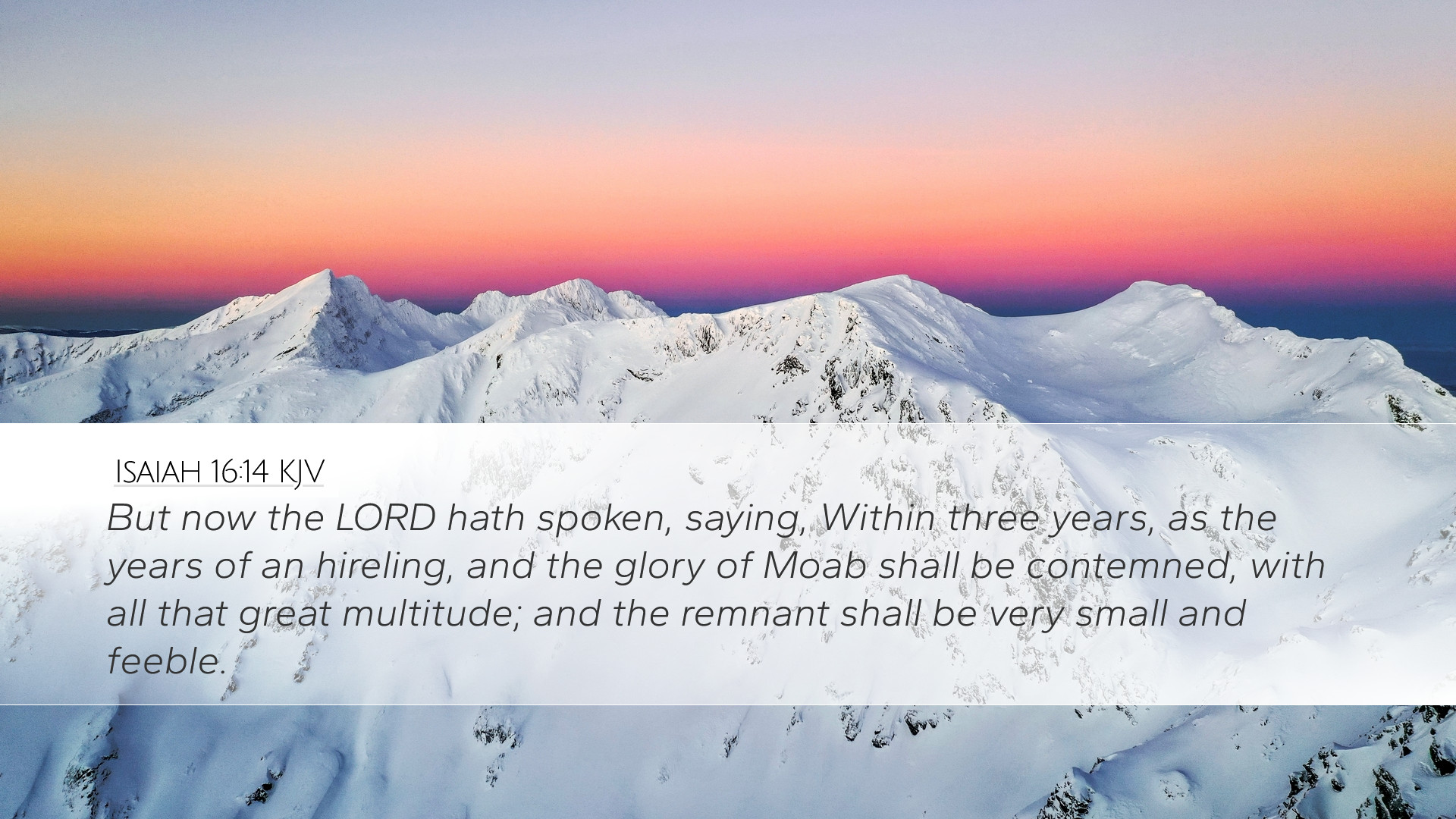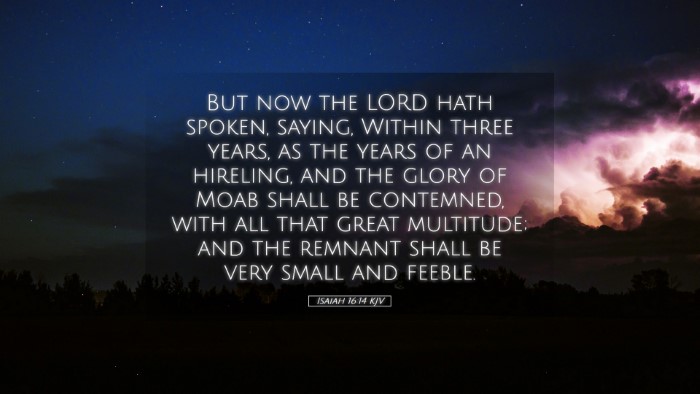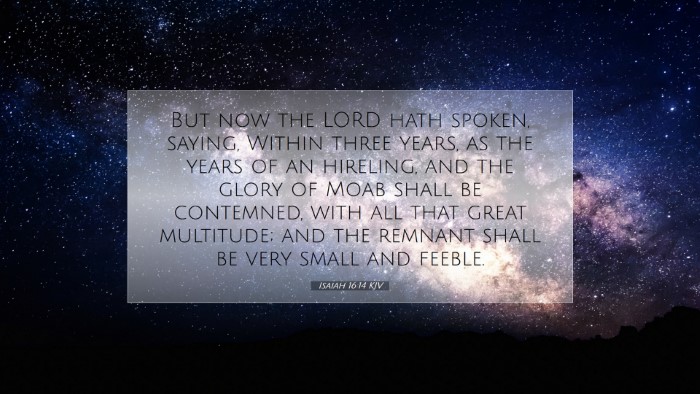Commentary on Isaiah 16:14
Verse: Isaiah 16:14 - "But now the Lord hath spoken, saying, Within three years, as the years of an hireling, and the glory of Moab shall be contemned, with all that great multitude; and the remnant shall be very small and feeble."
Introduction
This verse serves as a prophetic declaration regarding the impending judgment upon Moab. As we delve into the insights from esteemed public domain commentaries, we gather a wealth of theological and contextual understanding that enriches our comprehension of Isaiah 16:14.
Context of the Prophecy
Historical Background: The chapter addresses the fate of Moab, a nation situated east of the Jordan River, known for its pride and idolatry. Following the conquest by the Assyrians and other neighboring powers, Moab was to face dire straits.
According to Matthew Henry, the impending calamity is not merely a military defeat but rather a reflection of divine judgment upon their spiritual corruption and reliance on their own strength.
Prophetic Urgency: Albert Barnes remarks on the time-frame given ('within three years'), emphasizing that such specificity illustrates God’s sovereignty and control over historical events. This timing aligns with the nature of prophetic fulfillment often seen throughout the Scriptures.
Exegetical Insights
Structure of the Prophecy: The verse illustrates a concise but powerful message of God’s judgment. The term "hireling" reflects the fleeting nature of Moab’s glory. Adam Clarke explains this metaphor as indicative of someone who works for a limited time without any long-term commitment, paralleling Moab's ephemeral power.
Contrast of Glory: The phrase 'the glory of Moab shall be contemned' underscores a stark decline from their former status. Alluding to their former pride and military prowess, Matthew Henry suggests that this decline serves to illustrate God's ultimate authority over nations.
Theological Implications
This verse presents several theological themes relevant to modern scholarship and pastoral teaching:
- Divine Judgment: The prophecy signifies God's righteous judgment against nations that stand against Him.
- Temporal vs. Eternal: Moab's precarious glory serves as a reminder that earthly success is fleeting compared to spiritual integrity.
- Hope for the Remnant: The 'very small and feeble' remnant signifies that God preserves a faithful group even when judgment falls. This theme runs throughout Scripture, emphasizing God's grace amidst judgment.
Practical Applications
For pastors and theologians, the teachings drawn from Isaiah 16:14 impart critical lessons for application in contemporary settings:
- Call to Humility: Like Moab, any community or church may fall vulnerable to pride; thus, there is a call to remain humble before God.
- Importance of Relying on God: The perils of self-reliance are evident, and the text encourages believers to place their trust solely in God's provision and protection.
- Preservation of a Remnant: The faithfulness of God to preserve a remnant encourages the faithful that their labor is not in vain, and highlights the importance of community in faith.
Conclusion
Isaiah 16:14 resonates with a timeless truth regarding God's sovereignty and the inevitable downfall of the proud. Through the insights from Matthew Henry, Albert Barnes, and Adam Clarke, we observe a deepened understanding of God's intentions towards nations and individuals. The prophetic messages serve both as warnings and encouragements, guiding believers in their faith journey.
As scholars, students, and pastors reflect on this prophecy, let them be mindful of the profound lessons it offers regarding divine judgment and the enduring hope of a faithful remnant.


